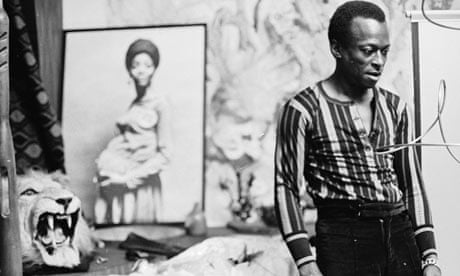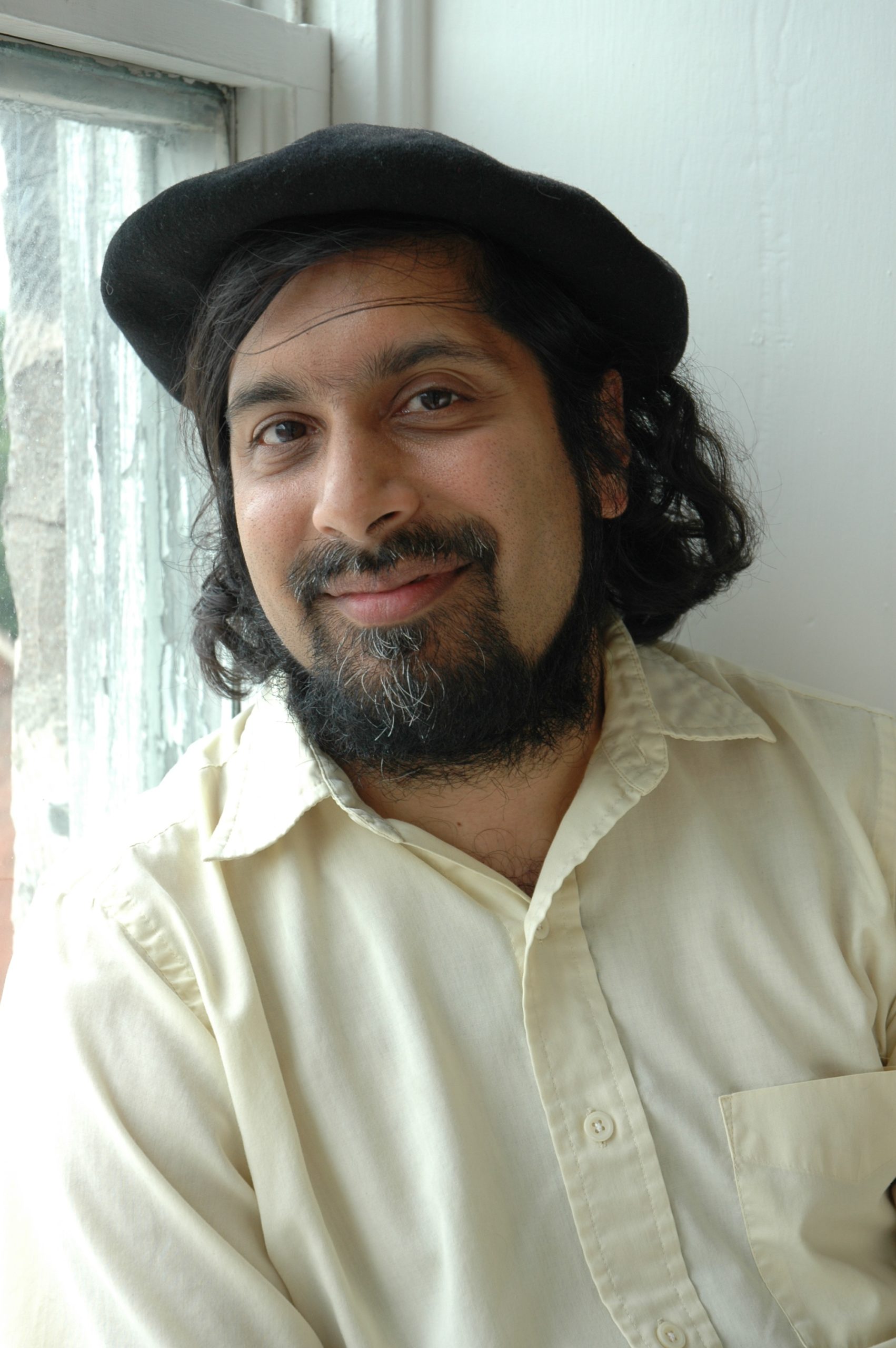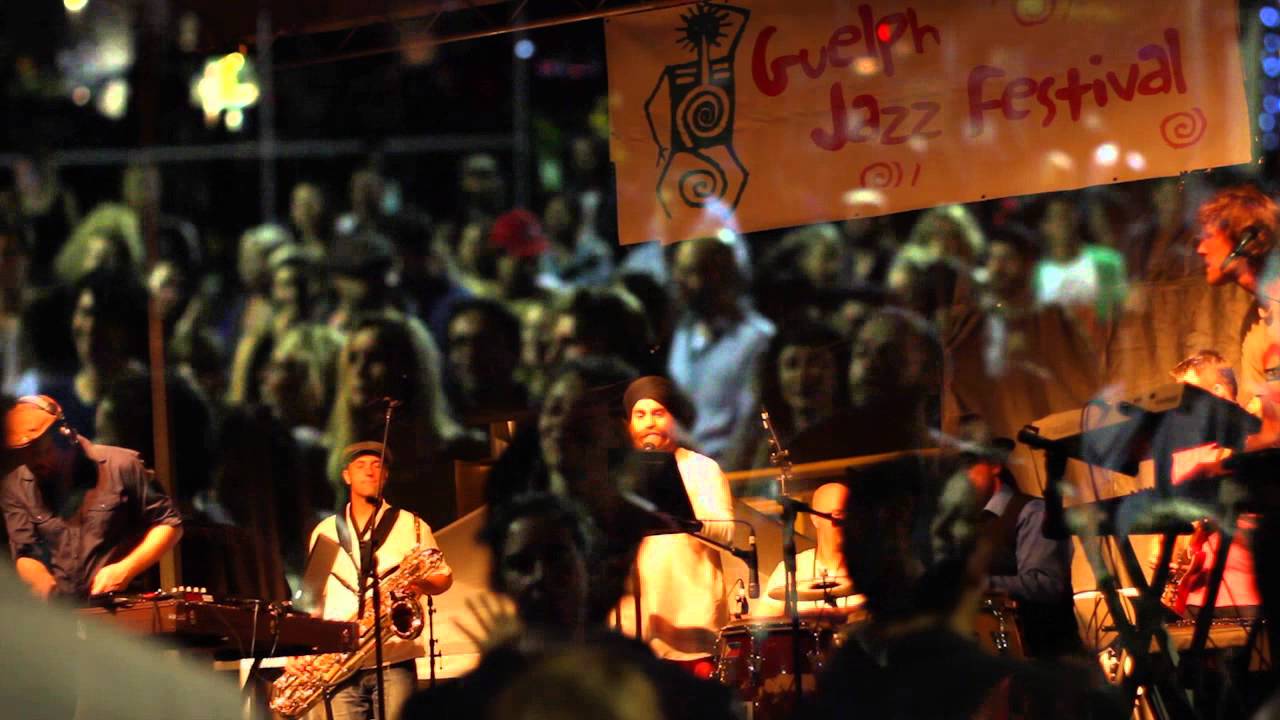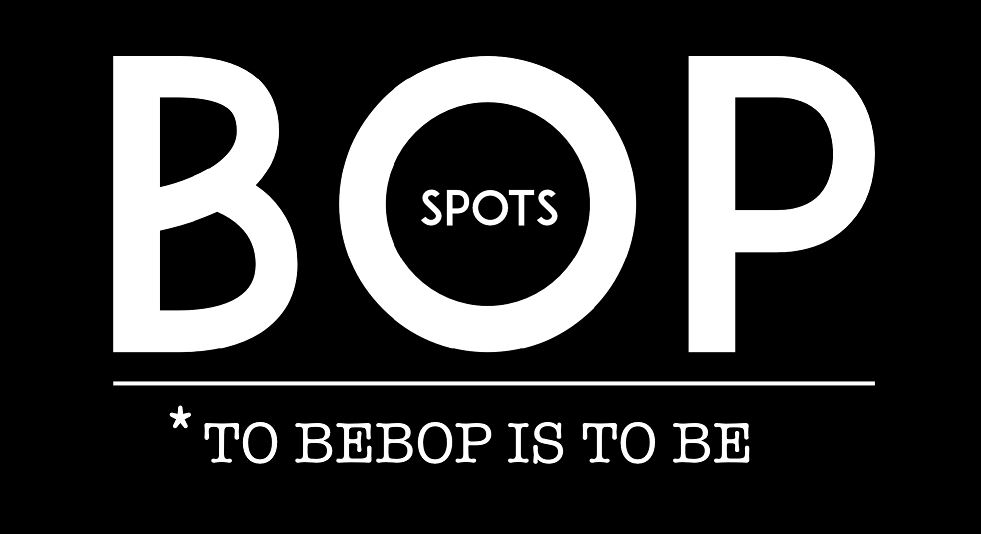
By: Estefanía Romero
We observe the discoveries and ideas of those who have dedicated their lives to understand jazz and improvisation, not just as artistic forms, but also through their link with human rights and social struggles. Why? Because the music can be more fascinating when we can understand what’s behind it… humans are behind it.
Dear readers, you’re welcome now to my interview with Dr. Ajay Heble, author and editor of several books, Director of International Institute for Critical Studies in Improvisation (IICSI) and Founding Artistic Director (1994-2016) of the award-winning Guelph Jazz Festival and Colloquium, among many other titles that make him a really interesting character in the jazz and improvisation world.
Let’s get to know him!

*In cover: Miles away… Miles Davis, 1977. Photographer: Don Hunstein/PR.
Source: https://www.theguardian.com/music/2012/jan/03/don-cheadle-miles-davis-movie
E: Dr. Heble, why is it important to have an institute like the IICSI?
A: Because improvisation for many years has been disparaged and misunderstood, both within the context of educational programs and pedagogies, but even in the broader public understanding there’s been a tendency to think that improvisation isn’t all that important or it’s just done.
So, part of my goal with funding the institute was to try to create awareness about the importance of improvisation, not only as a musical or an artistic practice, but more broadly and even more importantly as a social practice. Improvisation has something to teach us about how we get along in our day-to-day interactions, how we can get along in a globalized society, the kind of social interactions that take place when musicians or artists improvise can be a very powerful model for broader structures of social cooperation and social understanding.
Improvisation was not looked upon favorably in the terms of arts funding, if you were an improvising artist and were trying to get funding it was difficult, but if you were a composer there was money available to you, for composers, residencies, commissioning grants. But if you were an improviser, it was more difficult for an artist to find funding. There were all of those things that were compelling me and my colleagues to do this work in the early days. I will say after 15, 20 years a lot of that has changed. We’ve seen improvisation more widely recognized, more widely been talked about in the context of pedagogies and arts funding; more events are popping out, exhibitions, art events, all over the world are focusing on improvisation so change is afoot.
E: You mentioned once that there is a huge gap between the academy and the reality. What can we do to connect these two worlds?
A: That’s a big big big question. I think it’s relevant for me not only in relation to the work that I do with jazz, but also in the context of the work I’ve done on human rights and education, and Community-Based pedagogy.
So, one of my recent books is called Classroom Action, it’s not specifically about jazz and improvisation though improvisation and jazz do come into the book, but it’s about community-based education and trying to make the link, as you suggest, between the work we do in the academy and broader struggles in the public world, in the public arena. This is about thinking about pedagogy: what do we teach? And why do we teach? Wanting to make the case that what we teach within the context of the academy has to be engaged with broader struggles that are taking place in the public arena, struggles for human rights, for democracy, equality, inclusion…
So, in my courses in the University of Guelph, I challenge my students to learn, and to activate their knowledge by working in the communities where they live. Many of those projects live on long after the classes have ended, and they have a real impact in the community.
With jazz I think it’s true also. A gap between the way in which people are taught, especially around improvisation. When jazz is taught, it is taught as a musical art form, not as a social form. So there is a tendency to either neglect or downplay the social impact of the music. Yet, as Archie Sheep and many others have taught us over the years, the music is vitally connected with the social struggles, human rights, and social justice.
E: Tell us more about your life. What made you write about jazz?
A: I grew up in a very musical household in Toronto. My father was a mathematician by training, by he was a passionate advocate of music, all music itself. He was a classical Indian musician, he played the sitar, he was also a classical Indian vocalist who was trained in many classical Indian musical styles. We would listen to music in the house, when I was growing up we had the opportunity to have many wonderful and famous musicians pass through the house. I didn’t think much of it, I thought it was a normal thing. We had house concerts where famous musicians would perform in our basement. The great Indian singer who just passed away, Lata Mangeshkar, she was one of the most famous singers in the world. She came to our house when I was a kid.
In high school I had the opportunity to study composition with Dr. Philip McConnell, who had a PHD in music. He was our music teacher and he taught composition in a high school class, it was really eye opening, it felt like a university class, where we were learning all these amazing things. That was inspirational for me too.
In terms of jazz, I got involved early on in high school. I was playing in a kind of alternative electronic band in the late 70’s. I was playing music with some friends, very inspired by the German rock scene. Music of people like Can, Tangerine Dream, Neu, and others. It was a very creative period in my life when I look back on it. But if you look at Can, a lot of their music was improvised, they would come out on the stage and just play.
Eventually I went on to play in a couple of other bands. A group called “Infinite Limits”, which was a kind of rock jazz band; then I played in a band named “The Pleasant Guise”, it was largely improvised music with kind of composed elements. I was doing most of the composition at the time. That band featured Richard Underhill, he went on to found and play in The Shuffle Demons.
In terms of playing in bands, I started out in the electronic music world. I was never playing traditional jazz, but I was more into avant-garde music and free jazz.
In Toronto I was in jazz reviewer, I was attending a lot of concerts, festivals in Toronto and elsewhere, including in Europe, I was really inspired by a lot of the music that I was hearing in Europe. In Toronto I became the jazz editor for The Varsity, which was the University of Toronto newspaper.
Eventually I moved to Guelph, and I landed my job as an English professor here in 1991. Three years after I started the Guelph Jazz Festival. At that point that’s where I put lots of my jazz energy. That was my community-based volunteer work. For many years I stopped playing music. Organizing the festival was really like having another full-time job on top of my university full-time job.
E: What are your biggest learnings from organizing the Guelph Jazz Festival?
I founded the festival in 1994 with a small group of friends. I served as an artistic director from 1994 to 2016. Probably the biggest lesson is a lesson about persistence. In the early years it was challenging because the festival became a festival of avant-garde jazz and creative improvised music, it was not a mainstream jazz festival.
It was a challenge because not everybody was ready for it. I have to say: if we build it, people will come. It took time to build that audience, because the goal for the Guelph Jazz Festival for me wasto build both a local audience and an international audience. In some ways, the international audience was easier because international audiences –at least until the pandemic– were willing to travel long distances to hear music, especially music that you might not get to hear in other festivals, in the region or in the country. We would get people coming from Latin America, Europe, even Africa, to attend, not just to perform at it.
It took some time to build a local audience, but I think we managed. It took some years but eventually people caught on and they took a real pride in it. They realized the festival was attracting these audiences from all around the world. And, oh! The hotels are full this weekend! And, oh! You’ve got a review in The Globe and Mail! (Canada national newspaper), and oh! In international jazz publications like Down Beat. So once that started to happen people really began to take notice locally. Persistence was really a key lesson for me.
The other big lesson: Building the International Institute for Critical Studies in Improvisation (IICSI), building the field of Critical Studies in Improvisation, was part of a strategy to make the festival sustainable.

E: You’re proposing a new model for jazz critics when you talk about the importance of adding ethics and feminism. Why?
A: We have to. I wrote that chapter on women and jazz in my book Landing on the Right Note. I cowrote that chapter with Gillian Siddall over 20 years ago. Two years ago I asked myself whether things have changed and I think the answer is “yes”. You’re right to suggest that there is a kind of new model for jazz criticism that needs to be nurtured and supported.
Ingrid Monson says things are changing. There’s still work to be done. But If you look around the bandstand at festivals now, it is different. In Canada we are paying attention to these issues, there are more women directing festivals, who are in roles as art presenters, as decision makers associated with festivals, there are more women performing on the bandstand. Ingrid Monson says “there is a turning point”. There is hope. Change is gonna come.
E: What makes a good jazz critic?
A: When you ask me that question it makes me think: “who are the jazz critics or the jazz writers that I appreciate?”. And the first person that comes to mind is Nate Chinen, who was the jazz critic for the New York Times. He’s got a relatively recent book called Playing Changes, which is very good. He can write about the music, he can write about what makes the music so compelling, but he can put that appreciation of the music within a broader social and cultural context in a way that’s really insightful. So, it’s not just about the music. I think there are many people who can write effectively about a concert, what they saw in a concert, in a recording. But finding a place within broader social, cultural, institutional contexts, for me it’s what makes it more interesting and more fulfilling, and I think someone like Nate Chinen has that capacity. He also has the capacity to appeal to a wider audience, he has a writing voice that’s really compelling. So, I think it’s about the voice: to whom are you speaking? For whom are you speaking?
E: You take Miles Davis and his negative behavior towards women to give an example in which ethics is important for us writers to consider. But… wouldn’t that possibly reach the cancel culture?
A: That’s a great question. I don’t have an answer. Miles Davis is complicated, as is the case of Charles Gayle, because their life was very complicated and there are many issues about race, about the lives they were living, that need to be taken in account, not to say they would justify anything, but they are part of the context that needs to be understood. I think the other thing about Miles is that, to a certain extent, it would be possible to listen to Miles Davis and not know about these issues, if you don’t follow that kind of criticism that is out there, read his autobiography or whatever, they would just listen into the records, the music is what it is. I’m not saying we should do that, but it’s possible for some people. With somebody like Charles Gayle you can’t do that because he is insisting his remarks are part of his music and performances, so you can’t separate his views from his performances.
Miles Davis… How can one make such an amazing music and live such an awful life? You’re right to say that there are going to be people boycotting Miles and the music he made, I don’t know people who’ve made that argument.
E: Probably the answer is just to create a conversation about it. I have always separated the person from the artist. But when you get to know a person, it is different. What if I’m writing about the jazz history of my country and I know there is a character who is very famous, but he stole money from his orchestra, am I doing okay by writing his name in this history or not?
A: Maybe you’re right by saying that we should open a conversation, because each context is going to be different. We need to take several factors into account before taking a decision about how we are going to react.
E: You have published 14 books, where should we start getting in touch with your work?
The only one that has been currently translated into Spanish is Landing on the wrong note. I would suggest the book that I coedited with Daniel Fischlin, The Other Side of Nowhere: Jazz, Improvisation, and Communities in Dialogue. It’s specifically about jazz and improvisation in relation to all of these broader issues, it’s an edited collection, but the introduction that Daniel and I wrote is important for laying some of the groundwork for much of the later work that we would do on improvisation. It anticipates a more recent book that I did with Daniel and George Lipsitz, which we collaboratively authored, called The Fierce Urgency of Now, which takes its title from Dr. Martin Luther King. It’s about improvisation and human rights.
Then I did two books with Daniel on music and human rights. Rebel Musics Volumes 1 and 2. There’s also a book that I did with Rob Wallace, called People Get Ready: The Future of Jazz Is Now! (Improvisation, Community, and Social Practice), that might be a good one for jazz readers or jazz listeners. It’s all about jazz with conversations about where the music is going. That’ll be a great starting point, it features articles by various people, including a number of musicians. Maybe that’s the one I’d recommend as a starting point for the readers of Bop Spots.

